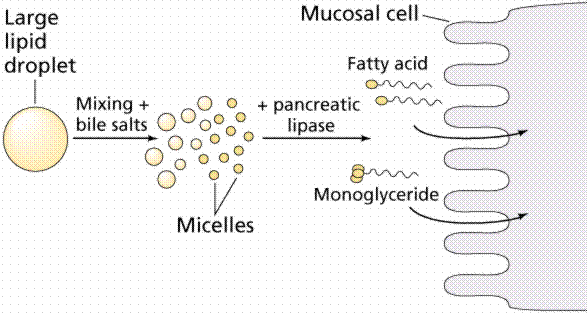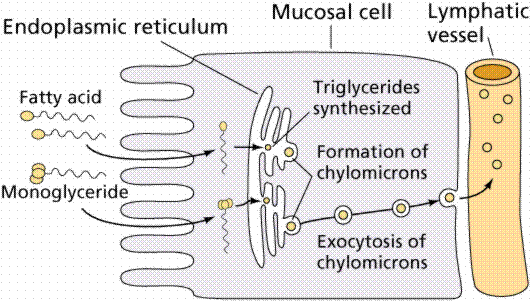پاسخ : جذب ویتامین k
این اون قسمته دیگه؟
Intestinal bacteria
Bacteria that normally colonize the large intestine synthesize menaquinones (vitamin K[SUB]2[/SUB]), which are an active form of vitamin K. Until recently it was thought that up to 50% of the human vitamin K requirement might be met by bacterial synthesis.
However, research indicates that the contribution of bacterial synthesis is much less than previously thought, although the exact contribution remains unclear
(48).
حالا این رو ببین:
"مواد دیگری که بر اثر فعالیت باکتریها ساخته میشوند عبارتند از:ویتامین K T،ویتامین B[SUB]12 [/SUB]،تیامین،ریبوفلاوین و گازهای مختلف که در ایجاد باد کولون سهیمند.به ویژه دی اکسیدکربن،گاز هیدروژن و متان.ویتامین K ز اهمیت خاصی برخوردار است ،زیرا در حالت طبیعی مقدار خوراکی روزانه آن برای حفظ انعقاد خون کافی نیست."گایتون 2012 ویرایش دوازدهم
اولا احسنت بر دقت شما که رفتید منبع را نگاه کردید و پیدا کردید !!
من گایتون را در این مورد قبول ندارم ! حتی هارپر بیوشیمی هم این مطلبا قبول داره !!
Vitamin K was discovered as a result of investigations
into the cause of a bleeding disorder—hemorrhagic
(sweet clover) disease—of cattle, and of chickens fed on
a fat-free diet. The missing factor in the diet of the
chickens was vitamin K, while the cattle feed contained
dicumarol, an antagonist of the vitamin. Antagonists
of vitamin K are used to reduce blood coagulation in
patients at risk of thrombosis—the most widely used
agent is warfarin.
Three compounds have the biologic activity of vita-
min K (Figure 45–7): phylloquinone, the normal di-
etary source, found in green vegetables; menaqui-
nones, synthesized by intestinal bacteria, with differing
lengths of side-chain; menadione, menadiol, and
menadiol diacetate, synthetic compounds that can be
metabolized to phylloquinone. Menaquinones are ab-
sorbed to some extent but it is not clear to what extent
they are biologically active as it is possible to induce
signs of vitamin K deficiency simply by feeding a phyl-
loquinone deficient diet, without inhibiting intestinal
bacterial action.


